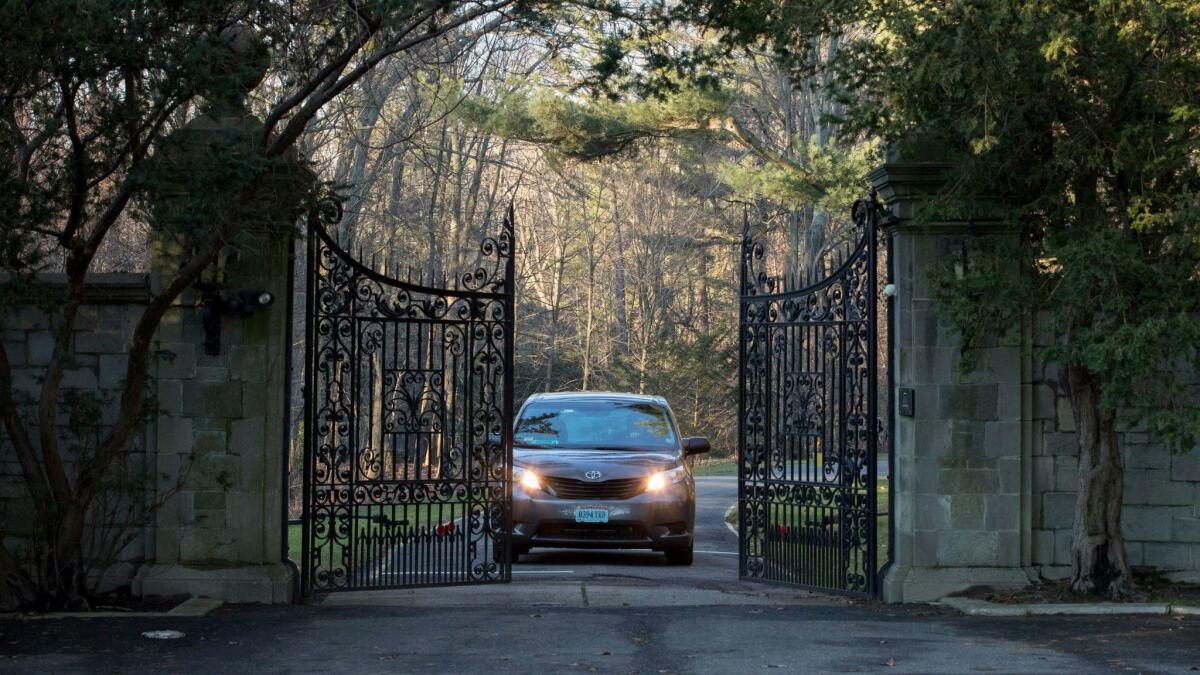Q&A: What is an HOA to do when a resident claims diplomatic immunity in a dispute?

QUESTION: A couple of properties in our common interest development belong to titleholders of foreign countries. These properties are often occupied by employees and families of different foreign embassies. Their vehicles have diplomatic license plates. While the properties are well-maintained, we never know who, if anyone, actually lives in those properties.
After one particularly raucous event at one of the properties, neighbors complained to the board and violation fines were sent to the property address. The only response was a handwritten note on the association’s invoice with an “X” over the dollar amount with the words “Diplomatic Immunity” written in. No fines pertaining to that property have ever been pursued for payment.
Later, a driver of a car associated with one of those properties backed out of a parking stall a bit too far and accidentally hit my vehicle, which was parked in a stall behind it. I tried to speak to the person who inflicted the damage but there was a serious language barrier. After that day, the driver of that car never returned. But the following week a different car with diplomatic license plates and a different driver parked in that spot.
After several months of trying to get my car fixed, I hired a lawyer to help speed up the process. He spoke with my insurance company and said the driver did not have to fix my car or pay for the damage to my vehicle because the person had diplomatic immunity.
Does diplomatic immunity mean diplomats don’t have to pay and follow any rules? What exactly is “diplomatic immunity”?
ANSWER: International law extends certain privileges and immunities to members of foreign diplomatic missions and consular posts, which we commonly refer to as “diplomatic immunity.” The theory behind this is that certain foreign government officials are not subject to the jurisdiction of local courts and other authorities while they carry out their duties.
The United States has recognized some form of diplomatic immunity since 1790, but it does not completely exempt diplomatic officers from the obligation of conforming to national and local laws and regulations. It was never meant to be a carte blanche for foreign officials to violate laws at their pleasure. Immunity is also not available to all employees of foreign governments equally. Although some foreign nationals receive a high degree of immunity, others enjoy protection only for specific issues related to their diplomatic missions.
Diplomatic license plates are coded to reflect the degree of immunity that the registered owner of the vehicle enjoys but is not conclusive evidence that that particular driver can avail himself of that immunity. The degree of immunity depends on a person’s exact position. Individuals with lesser diplomatic protections are only immune from lawsuits arising directly from their official duties, which may or may not include the use of property as a residence. That said, if the property in your association is being used for official diplomatic functions, then immunity might apply.
Even if there is nothing you or the association can do to enforce the association’s rules, nothing prevents you, or the board, from asking for proof of the exact level of immunity enjoyed by the individuals involved. If the association cannot pursue these individuals for damage they cause to common property, consider tendering the incidents to the association’s insurance. Residents who suffer damage at the hands of someone who enjoys immunity may have to tender their claim to their own insurance carrier.
In the future, your association’s board should request information about diplomats moving into the development and request a waiver, which the association’s counsel can draft, of diplomatic immunity for all individuals associated with the property.
The association should also require a substantial prepaid deposit prior to moving in. At least one court has upheld such a request for waiver and determined that such a request is not discrimination based on employment but rather based on immunity status, which is not a protected class.
Whatever avenue the board chooses to pursue when dealing with this matter, it must be prompt and consistent.
Zachary Levine, a partner at Wolk & Levine, a business and intellectual property law firm, co-wrote this column. Vanitzian is an arbitrator and mediator. Send questions to Donie Vanitzian, JD, P.O. Box 10490, Marina del Rey, CA 90295 ornoexit@mindspring.com
More to Read
Inside the business of entertainment
The Wide Shot brings you news, analysis and insights on everything from streaming wars to production — and what it all means for the future.
You may occasionally receive promotional content from the Los Angeles Times.








